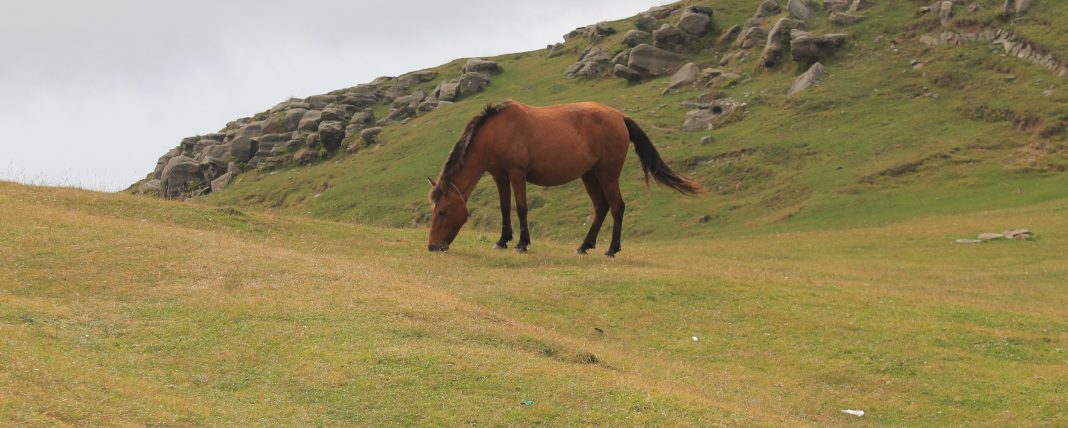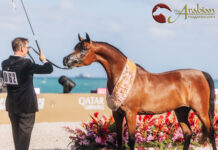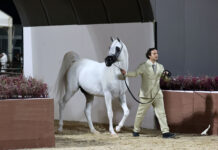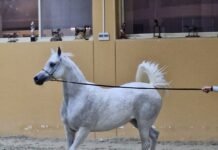Teamwork, communication and trust are key to helping to solve the serious problem of horse, pony and donkey obesity in the UK, was the consensus of the panel of experts at the National Equine Forum’s (NEF) Great Weight Debate (Equine), held last month.
The Great Weight Debate (Equine) was the second of two special interest webinars to be held in advance of the National Equine Forum in March. It was a truly international affair with more than 170 delegates signing in from Australia, Belgium, Chile, Czech Republic, France, Israel, Norway, Slovakia and United States of America as well as the United Kingdom and Ireland.
Conclusions and possible pathways for change will be presented at #NEF21. Bonus content from the Great Weight Debate (Equine) in the form of answers from the panellists to additional questions asked during the session, will be available in the next few weeks – keep an eye on NEF’s social media channels or sign up to the mailing list here.
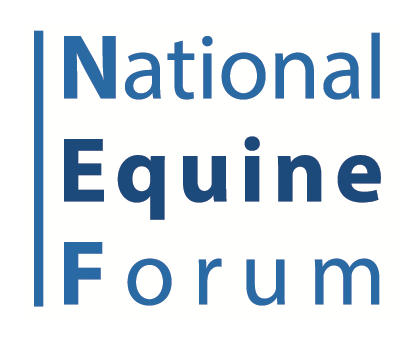
Equine obesity is a growing problem not just in the UK but around the world. The webinar explored how various sectors of the equestrian industry perceive the challenges faced by those who are struggling to manage their horse’s weight. It included the views of equine vet Lucy Grieve, horse owner Helen Gale, livery yard owner and coach Beth Maloney, nutritionist Liz Bulbrook, competition judge David Ingle and equine welfare officer Penny Baker. The session was chaired by equine vet and nutrition specialist Professor Pat Harris with the support of Dr Tamzin Furtado, a social scientist with a special interest in human behaviour change for animals.
The panellists shared their views on what they believed to be the blocks for horse owners in recognising obesity and addressing the problem. They identified the importance of empowering owners and working with them to make step by step changes with the support of a reliable and trusted team including vet, nutritionist, yard owner and farrier.
“Vets are in unique and privileged position to provide an achievable and effective tailor-made strategy for individual horses,” said Lucy Grieve. “We must all learn to overcome avoidance and engage recognise, accept and understand, and tailor a solution.”
Helen Gale continued: “Owners need to be able to recognise and acknowledge that their horse has a weight problem and be motivated to take action. Communication is key. It’s important for others to understand why you are following the advice form vets and other experts and how they can best help.”
There was recognition that a bespoke approach is needed for every horse, owner and situation. Some livery owners may face challenges in changing management practices and peer pressure on a yard may prevent people implementing intake restriction measures such as a grazing muzzle or restricted turnout.
“Peer pressure can be daunting and there can be a lack of confidence that you are doing the right thing,” said Beth Maloney.
Communication and proactive signposting to reliable advice and scientific information were identified as pivotal, not only in helping to identify weight changes but also to build horse owners’ knowledge and confidence. This would build a clearer understanding of the calorific value of feeds and of grass and forage, what constitutes a balanced diet, the importance of regular exercise and weight monitoring, being able to identify the difference between fat and muscle and being familiar and comfortable with the range of weight control tactics, such as grazing muzzles, restricted grazing and track systems.
“Understanding nutritional value of forage and feed is another challenge. We see milder winters and changing environmental conditions, and this can have an impact on what is fed,” said Liz Bulbrook.
David Ingle suggested owners should ask themselves “what is fat and what is muscle. Some people may be in denial. If you don’t know you shouldn’t be afraid not to know,” he said.
The language used was also identified as important; gauging the needs and response of the individual and asking the owner what they think, would be more effective than using potentially inflammatory language – for example choosing the phrase ‘fat pad’ rather than the terms ‘overweight’ or ‘obese’’
“If we are all being really honest with ourselves obesity is neglect,” said Lucy . “I doubt many vets would walk away from an emaciated horse or an infected wound or a cloudy eye so why are we so willing to walk away from these ticking time bombs which are actually a real welfare issue as the animal is potentially at risk of losing their life?”
Penny Baker reiterated this message: “Our farms have seen an increase in overweight horses being admitted. Long lasting health issues attached to these horses can make it difficult for owners to cope, and the effects of obesity impedes their chance of successful rehabilitation and we’ve seen a guarded prognosis for horses in this category.”
Tamzin Furtado pointed out that the sector needs to normalise horses being the right weight and commend good body condition. “Everyone needs to work together,” she said.
Lucy added that owners should see this as an exciting challenge and a positive thing they can do with their horses. “Relish the ability to do something good for your horse,” she said.
The chair Pat Harris concluded that the webinar had been a unique opportunity for open and constructive conversation between various parts of the industry. “This is an important welfare topic in which we all have a role to play. I hope it will lead to collaborative action providing ‘joined-up’ support to those trying to manage an obese horse pony or donkey.”
The 29th National Equine Forum will be held virtually on Thursday 4 March 2021. Tickets will be available in February 2021. If you would like to receive notification of their availability, please subscribe to their mailing list here.
With thanks to those supporting The Great Weight Debate (Equine):
SPONSORS: The British Horse Society; Redwings Horse Sanctuary; SPILLERS™; Talk Equine; World Horse Welfare
CORPORATE FRIENDS: Jeffress Scholarship Trust
FRIENDS: Central Prefix Register; Sue Dyson; Neue Schule; James Rayner.


